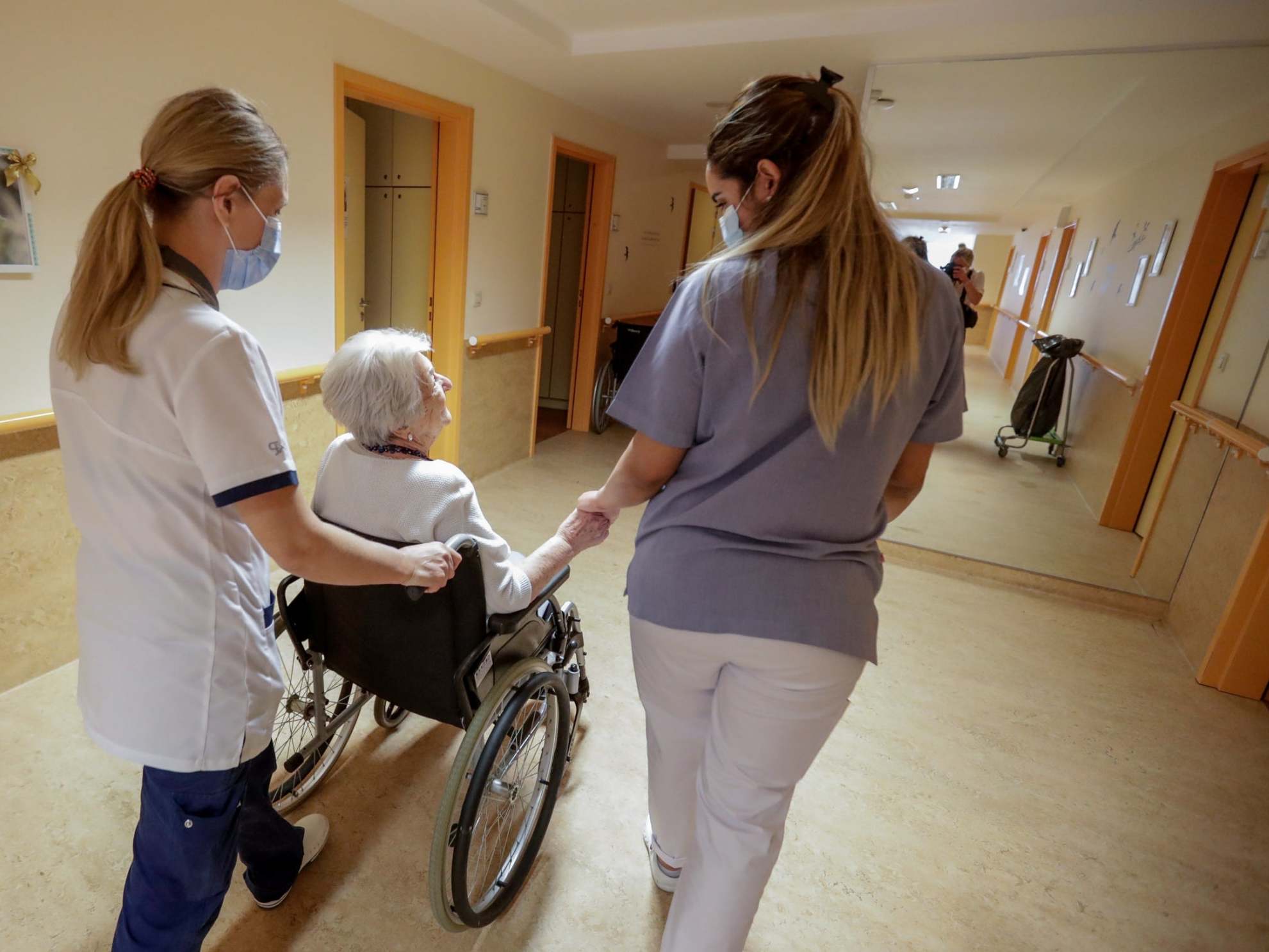Care home residents facing prison-like conditions and 'losing will to live' since lockdown, MPs hear
National charity says it's heard evidence of residents losing weight, speech, and unable to recognise members of their own family

Your support helps us to tell the story
From reproductive rights to climate change to Big Tech, The Independent is on the ground when the story is developing. Whether it's investigating the financials of Elon Musk's pro-Trump PAC or producing our latest documentary, 'The A Word', which shines a light on the American women fighting for reproductive rights, we know how important it is to parse out the facts from the messaging.
At such a critical moment in US history, we need reporters on the ground. Your donation allows us to keep sending journalists to speak to both sides of the story.
The Independent is trusted by Americans across the entire political spectrum. And unlike many other quality news outlets, we choose not to lock Americans out of our reporting and analysis with paywalls. We believe quality journalism should be available to everyone, paid for by those who can afford it.
Your support makes all the difference.MPs have been told some care homes have become “like prisons” since the coronavirus lockdown was enforced, with isolation having a “devastating” impact on the mental health of residents.
In an evidence session, a national charity outlined the “deteriorating” well-being of many care users, including receiving daily calls of people losing weight, speech, memory and no longer being able to recognise family members after months of separation.
“There’s one relative who put it to us: they are losing the will to live,” said Helen Wildbore, the director of the Relatives & Residents Association (R&RA).
The distressing experiences of residents in care home across the country was laid bare during a session of the All-Party Parliamentary Group (APPG) on coronavirus, which focused on the impact of the pandemic on social care settings.
The R&RA, which supports people needing care and their relatives and friends who help them cope, urged the government and sector to find “a safe way to manage the virus going forward in care settings to achieve a better balance protecting life and protecting well-being”.
Speaking alongside other representatives from the care sector, Ms Wildbore said on Wednesday that no risk assessments were carried out for the sudden ending of visits to relatives, which cut of vital support networks.
“That demonstrates a lack of understanding about the role that many relatives play as an essential part of the care team for their relative,” she said.
The director of R&RA outlined that many residents faced “double isolation” during the lockdown, including isolation from both external contacts and internally from care homes restricting movements and asking residents to remain in their rooms.
“Shared areas would be closed, lack of activities, so that people living I care homes were not getting the support and interactions they would normally get with other residents and with many staff members,” she said.
“If you take away that social element, the social support networks that people have, homes become very different places and sadly many of the callers to our helpline have been telling us that the current situation in care homes is now very much like a prison.”
In evidence submitted to the APPG on coronavirus ahead of the session, Ms Wildbore added: “Isolation is having a devastating impact on mental well-being. We hear of people who become increasingly depressed and withdrawn: they have stopped eating or drinking, lost speech, think their relatives have ‘abandoned’ them or passed away, and have ‘lost the will to live’. Some care users no longer recognise or remember their family and friends”.
Judy Downey, the chair of the organisation, also told MPs she felt that from the beginning of the Covid-19 crisis there had been a lack of understanding about the care sector and its vulnerabilities at the “top of government”.
She claimed: “Statements made by the secretary of state, the chief statistical officer, the chief medical officer, the chief nursing nursing officer – all of whom seem to have an apparent lack of comprehension about the shape and structure of the care system which made it increasingly difficult to manage and difficult to monitor.”
Ms Downey later added: “It’s hard to be positive about what the government support was in this context – the guidance was confused, contradictory and often too late. And that was really very hard for people to cope with.”
Ms Wildfire added that government guidance on stopping visits to care homes at the start of the lockdown provided “very little support” on alternatives and said using telephone and video calls to keep in contact with relatives was “completely impractical and simply not an option” for some.
She said the new guidance published last month by ministers – allowing visits to some care homes for the first time since the lockdown – lacked both clarity and leadership.
“Particularly disturbing for many of our helpline callers has been the part of the guidance which says a care home resident should have one, single, constant visitor, which is just impractical for many people and heartbreaking for many families, who may have two, three, more people who want to visit and provide different types of support.”
Publishing the advice on care home visits July, the health secretary, Matt Hancock, said: “My heart goes out to those who haven’t seen loved ones in care homes for months. I hope this step helps people come back together.
“We are now able to carefully and safely allow visits to care homes, which will be based on local knowledge and circumstances for each care home.
“It is really important that we don’t undo all of the hard work of care homes over the last few months while ensuring families and friends can be safely reunited so we have put in place guidance that protects everyone.”
Join our commenting forum
Join thought-provoking conversations, follow other Independent readers and see their replies
Comments